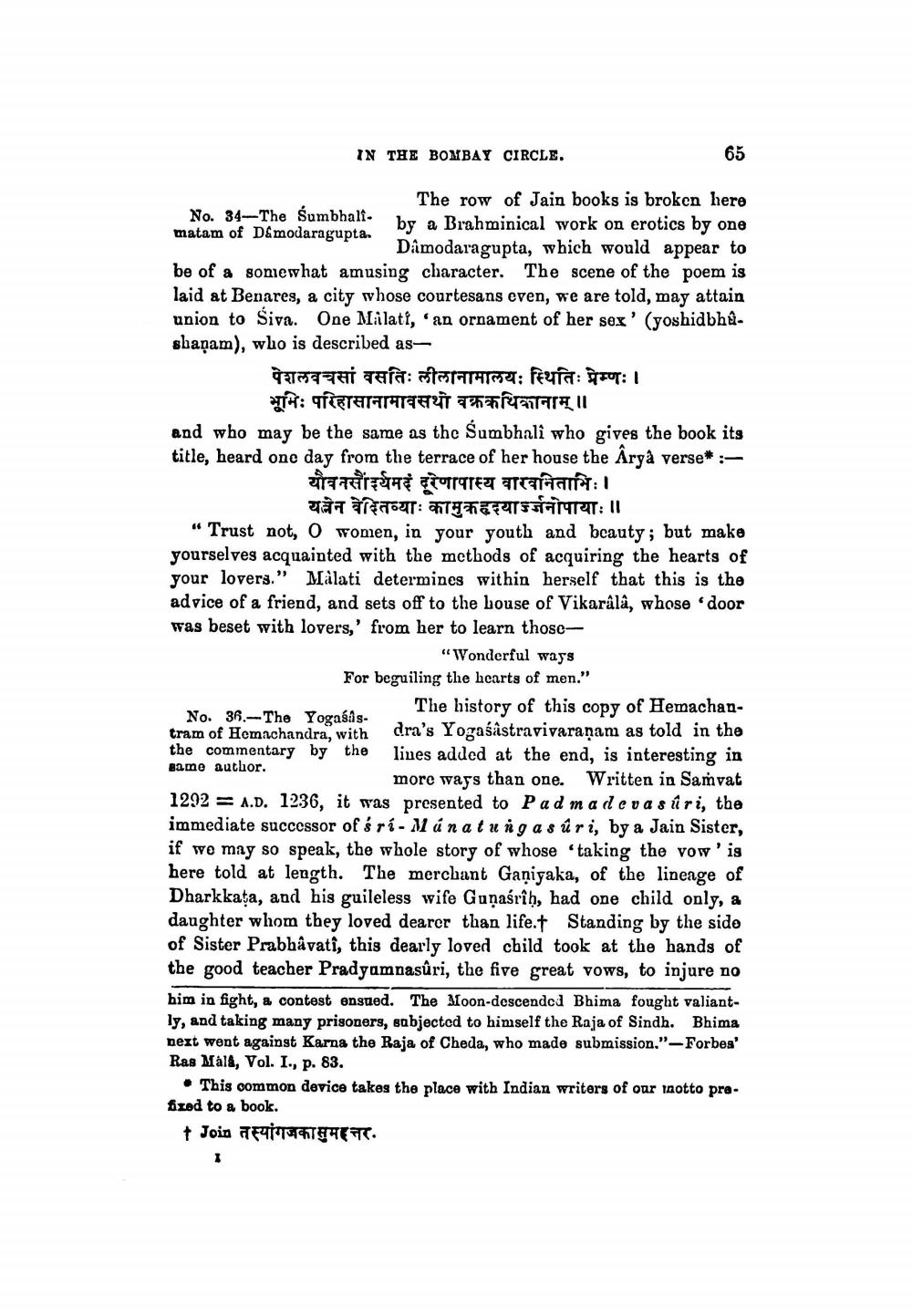________________
IN THE BOMBAY CIRCLE.
65
The row of Jain books is broken here No. 34-The Sumbhali.
by a Brahminical work on erotics by one matam of D&modaragupta.
Damodaragupta, which would appear to be of a somewhat amusing character. The scene of the poem is laid at Benares, a city whose courtesans even, we are told, may attain union to Siva. One Malatí, an ornament of her sex' (yoshidbhů. shaņam), who is described as
पेशलवचसा वसतिः लीलानामालयः स्थितिःप्रेम्णः ।
THT: QTTETETATATERT and who may be the same as the Sumbhali who gives the book its title, heard one day from the terrace of her house the Arya verse* :
यौवनसौंदर्यमदं दूरेणापास्य वारवनिताभिः।
योन वेदितव्याः कामुकहृदयार्जनोपायाः।। “ Trust not, 0 women, in your youth and beauty; but make yourselves acquainted with the methods of acquiring the hearts of your lovers." Màlati determines within herself that this is the advice of a friend, and sets off to the house of Vikarâlâ, whose door was beset with lovers,' from her to learn those
"Wonderful ways For beguiling the hearts of men."
The history of this copy of HemachanNo. 36.-The Yogasastram of Hemachandra, with dra's Yogasastravivaranam as told in the the commentary by the lines added at the end, is interesting in same author.
more ways than one. Written in Saṁvat 1292 = A.D. 1236, it was presented to Padma deva sûri, the immediate successor of śré-Mána tuig as úri, by a Jain Sister, if we may so speak, the whole story of whose 'taking the vow' is here told at length. The merchant Ganiyaka, of the lineage of Dharkkata, and his guileless wife Guņasrih, had one child only, a daughter whom they loved dearer than life.t Standing by the side of Sister Prabhavati, this dearly loved child took at the hands of the good teacher Pradyamnasûri, the five great vows, to injure no him in fight, a contest ensued. The Moon-descended Bhima fought valiantly, and taking many prisoners, subjected to himself the Raja of Sindh. Bhima next went against Karna the Raja of Cheda, who made submission."-Forbes' Ras Mald, Vol. I., p. 83.
• This common device takes the place with Indian writers of our inotto prafized to a book.
† Join a FAİTTETHET.




